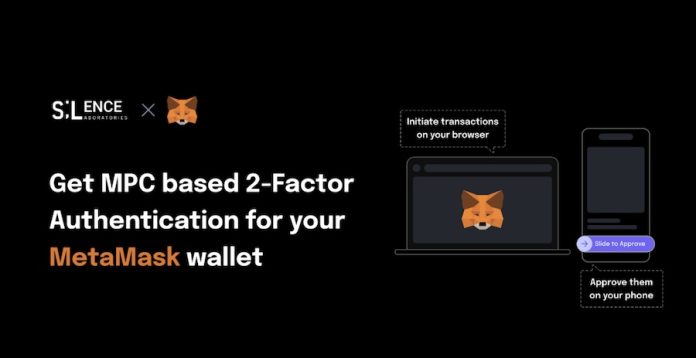There’s no getting around it, crypto adoption is on the rise. Whether attributable to bitcoin ETF approvals, the hype around game-fi, the Ordinals craze, institutional inflows, or all of the above, there is a growing sense that a new era has dawned. Mainstream acceptance of cryptocurrencies and stablecoins – as well as the tech powering them – makes a mockery of any lingering claims that the industry is “niche.”
Despite this shifting outlook, security concerns remain an obvious obstacle to crypto market participation. Security.org’s recent Cryptocurrency Adoption and Sentiment Report, which gauges insights from 1,500 Americans, shows respondents fear losing access to their wallets, falling victim to cyber-attacks, and being wronged by an exchange platform. In 2023 alone, over $3 billion was lost in crypto hacks, scams, and exploits.
As new threats emerge, innovative companies tackle difficult challenges ranging from infrastructure security to more niche customer-centric applications. For example, Silence Laboratories and its team of talented cybersecurity and cryptography experts are laser-focused on bringing security to MetaMask accounts, the world’s most popular wallet extension with over 30 million monthly active users and unfortunately, one that still carries a steep learning curve for new users.
Concerns about security risks associated with crypto, and the need for enhanced security solutions that are also user-friendly, are not unfounded. Although digital assets stolen through hacking fell by more than 50% last year, the number of individual hacks rose. In one perpetrated by cybercriminals linked to North Korea, wallet providers were robbed of $127 million. As crypto adoption grows, we must educate users about implementing robust security measures to ensure they don’t become another statistic.
Silent Shard Snap Brings 2FA-Like Experience to MetaMask
Coincidently, MetaMask itself noted in an article last year, “2FA is a great feature to expect from any website using traditional authentication, but is a little more complicated for a self-custodial (or non-custodial) crypto wallet like MetaMask.”
More complicated, yes – but not impossible, it turns out. A year after that article was published, Silence Laboratories has launched Silent Shard Snap, their wallet add-on that allows for distributed self-custody, meaning ownership of private keys is spread across two user-controlled devices: namely, the user’s browser and phone. Interested users can download and explore the product now, marking a significant milestone for Silence Laboratories.
Silent Shard Snap is powered by Multi-Party Computation (MPC) technology and eliminates the single point of failure associated with MetaMask and other self-custody wallet solutions. Even if a hacker were to find your private key, they could not move any funds without your smartphone. Because neither MetaMask nor Silent Shard Snap stores private keys, the 2FA-like solution ensures the wallet experience remains fully self-custodial.
2FA has become a common means of safeguarding banking, social media, and email accounts.. With Silent Shard Snap, the familiar push-based 2FA model is introduced to the MetaMask interaction process, bringing slick Web2 UX to Web3. With every transaction initiated on the wallet sent to their device for confirmation, MetaMask users gain complete peace of mind.
Innovations like Silent Shard Snap are what the industry needs to reassure new crypto users that they won’t lose their funds. Its arrival on an industry leader like MetaMask is a major step forward, offering the peace of mind consumers need to embrace crypto with open arms.
Why Distributed Self-Custody is a Necessity
Those unfamiliar with the world of crypto may read the aforementioned reports and simply think they are powerless to prevent sophisticated hackers from emptying their accounts. In truth, most of the funds stolen come from exploits of unsafe DeFi and CeFi protocols, with the occasional centralized exchange failure. It’s analogous to clever hackers exploiting vulnerabilities in card processing and inter-bank transfer systems in Web2.
When a bank falls victim to a hack or robbery, customers’ funds are typically protected by insurance. For the most part, this isn’t the case in crypto – so the fears of industry newcomers are understandable as the stakes are extremely high.
The lack of intermediaries, however, can be a blessing. Users are compelled to follow best practices to protect their investments, which generally means using a self-custody wallet. This is where the phrase Not Your Keys, Not Your Crypto comes from: if you retain possession of your private keys, you alone can access the funds in your account. It’s like having the only key to an impenetrable bank vault.
Self-custody wallets are considered the best of the best in terms of security. So long as you don’t expose your private keys to the internet (recording them in a Google doc, for example, or storing them in a desktop file), and you are careful with what protocols and open-source software you interact with, nobody can gain unauthorized access to your account.
It’s important to recognize that although users maintain control over their keys in a standard Self-Custody model, the potential for a single point of failure still exists. This vulnerability arises from the possibility of keys being stolen or users being tricked into entering their seed phrases through phishing attempts, a risk that impacts all wallets. The appeal of Distributed Self-Custody stems from its robust structure that eliminates any single point of failure, courtesy of MPC (Multi-Party Computation) and akin technologies, ensuring users retain unparalleled control and empowerment.
Companies like Silence Laboratories and MetaMask are at the forefront of creating simple yet effective user experiences that remove much of the burden and learning curve of distributed self-custody. With the help of these entities and others, the next wave of crypto adoption will benefit from superior security, improved UX, and an altogether happier ecosystem.

